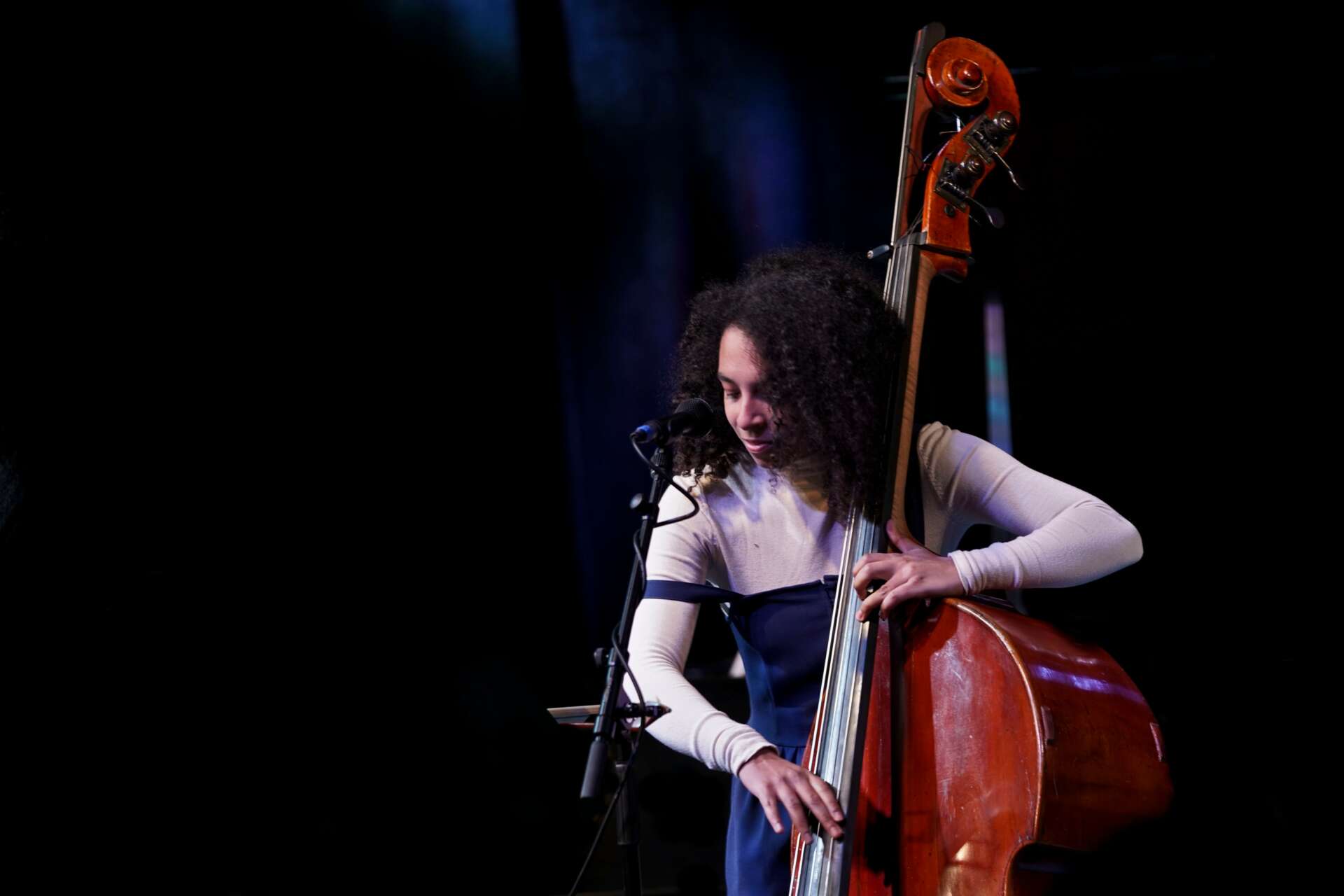We recently connected with Devon Gates and have shared our conversation below.
Devon, appreciate you joining us today. Can you talk to us about a project that’s meant a lot to you?
One of the most meaningful projects I’ve done recently is putting together a collective of musicians who identify as non-male in the Boston jazz/creative music scene. Modeled a little bit after the Mutual Mentorship for Musicians fellowship (run by Jen Shyu and Sara Serpa) that I participated in a few years ago, I helped pair folks into duo commissions, and we met regularly throughout this past summer to chat and build community around music and gender, its challenges and how to build better support systems. In August we had a beautiful concert with all of the premieres of the new pieces folks had written, and it just felt like such a remarkable way to give back to this musical community that I feel has been so nurturing and special for me these past few years. Being a non-male person in these male-dominated musical spaces can be really difficult, in obvious and also sometimes invisible ways that are hard to realize unless you are surrounded by people who can validate your experiences, and lift you up when things get difficult. I hope to continue being able to create these sorts of safer musical spaces where underrepresented folks feel like they can be real about the totality of what it is to experience musicmaking, the highs and the lows, and everything in between.

As always, we appreciate you sharing your insights and we’ve got a few more questions for you, but before we get to all of that can you take a minute to introduce yourself and give our readers some of your back background and context?
I am a bassist, vocalist and composer from Atlanta, Georgia. Growing up, I played in rock and blues garage bands, and only picked up jazz upright in high school band class. I then went on to study in this amazing and incredibly intense dual program between both Harvard College and Berklee College of Music, mixing a major in Social Anthropology with learning from jazz greats like Esperanza Spalding, Terri Lyne Carrington, Linda May Han Oh, and Kris Davis.
It was through these experiences that I realized my passion for working in musical settings that also push boundaries in other areas — like interdisciplenary collaborations with playwrights and dancers, or working with the Berklee Institute of Jazz and Gender Justice on curating a museum exhibit highlighting non-male jazz musicians. Even through my work teaching and facilitating music in both musical and non-musical spaces, I love when my practice incorporates using music as a vessel to bring people together, to build community, and to provide a space for free expression for whoever may need it most!

What do you think is the goal or mission that drives your creative journey?
I think that in the current freelancing landscape, it can often feel easier than ever to compare our journeys, and to assume that everyone else is somehow happier, or making more “progress” towards their goals than we might believe we are. As I move into this early stage in my career I continue to try to ground myself in, first and foremost, my life outside of my work (because it is incredibly important to have one, and protect it above all else!)
When I concentrate on prioritizing my relationships with others, and what feels good (to reference pleasure activism by adrienne maree brown, one of my favorite authors) both musically and personally, I tend to make decisions from a much more peaceful place. Of course, that can be difficult to do, and no one is perfect, but I think that having perspective on music’s role in our lives can really help things feel less high-stakes when we need a little levity.

What’s the most rewarding aspect of being a creative in your experience?
For me, the most rewarding part of what I do is the experience of connection with someone I otherwise might not have connected with, or hadn’t gotten to know on that deeper level beforehand. There have been countless times where I go into a musical situation feeling self-conscious or not good enough, feeling distracted or wounded, and the sheer act of playing music in an open environment that feels safe in my body can somehow be enough to change my entire attitude, and lift my spirits. I get so much gratitude from these opportunities to experience pure joy, and the way that this experience is shared, and builds community over time. So many of my best friends are people I connect with equally well at the post or pre-show hang, and I think that the vulnerability that playing with each other and truly getting to know each other on an artistic level really deepens our bonds. There is a part of someone that they only share in that setting, and it is an honor to witness it whenever someone takes the risk of sharing that part of themselves with you.

Contact Info:
- Website: devongatesmusic.com
- Instagram: instagram.com/devongatesmusic
- Youtube: https://www.youtube.com/channel/UC8_gsodHZtMC7CPWnEcgSDg/videos
Image Credits
Neriyah Mastriani-Levi, Zoe Casas


